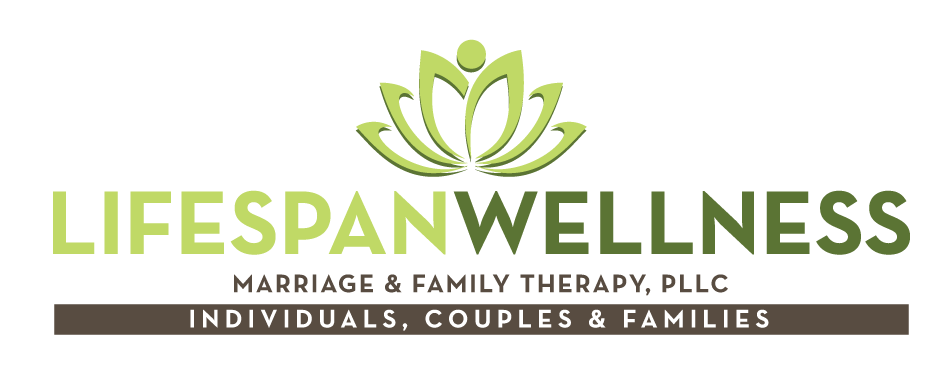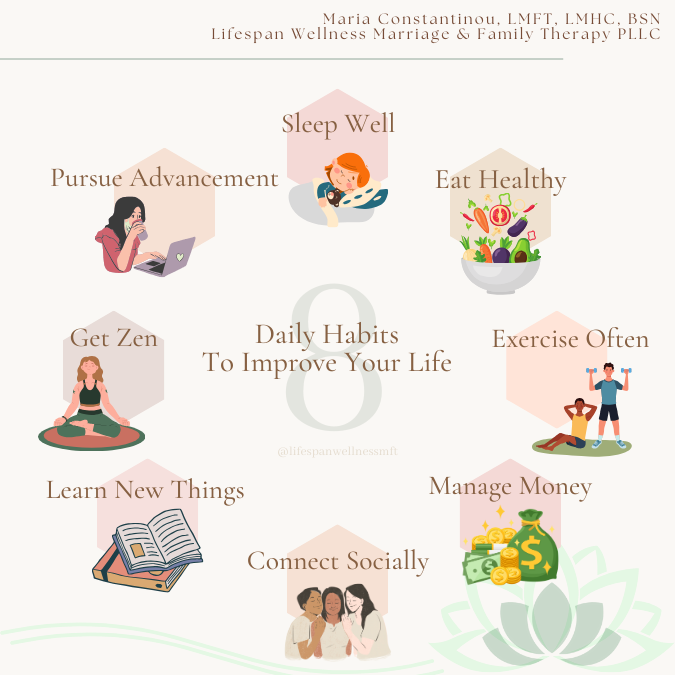When was the last time you totally reset yourself?
A reset can be defined as the act of restoring, adjusting, or fixing something in a new or different way. We might think of these acts on a smaller scale, such as taking a mental health day from work, a spa day, a weekend just relaxing with movies, but very often the factors that psychologically and physically weigh us down remain unaddressed, or even worse, unresolved.
According to the article “Mental health statistics 2024” published by USA Today, there are more than 50 million Americans (adults and children) who deal with mental health issues, and a large percentage of people go without treatment for mental illness every year. The most common mental health issues among adults appear to be anxiety and depression, and suicide remains the second-leading cause of death among all U.S. children ages 10 to 14 (Moore & McGinley, 2024).
Alongside these mental health statistics, the Journal of the American Heart Association published a study discussing the association of depression and poor mental health with cardiovascular disease (which continues to be the leading cause of mortality) and suboptimal cardiovascular health among adults 18–49 years old (Kwapong, et. al., 2023). In addition, the Journal of Family and Economic Issues published a study about the relationship between financial worries and psychological distress among U.S. adults (Ryu & Fan, 2023). Furthermore, a study published by the National Library of Medicine discussed the association of food insecurity and poor nutrition with mental health and physical health problems, “including chronic diseases known to be disproportionately common among persons with serious mental illnesses” (Compton & Ku, 2023).
As a psychotherapist with over 25 years of experience working with adults, couples, children, and families, I saw a clear and repeating pattern of interrelatedness between mental health and physical health. This awareness motivated me to complete studies and training to also become a registered nurse. The combination of the two healthcare disciplines refined my perspective and practice to include more attention to the social determinants of health and the 8 dimensions of wellness when supporting people with improving their overall health. The 8 dimensions of wellness, developed by Dr. Peggy Swarbrick, are comprised of the Physical, Emotional, Spiritual, Financial, Environmental, Occupational, Social, and Intellectual areas of life that make up our overall wellbeing. I found that combining psychotherapy approaches with health training and attention to these 8 areas helped the people that I worked with to stabilize their functioning and elevate the quality of their heath, relationships and overall life functioning much faster, by making adjustments that provided daily benefits and positive reinforcement and lasting long-term gains for physical and mental health.
The secret to health, happiness, and higher quality of life seems to be choosing 8 simple, helpful habits, and using them consistently. For best results, select at least one good habit from several of the 8 dimensions to help improve all areas of your life.
Some helpful habits that improve overall wellness include:
Physical: Restructure bedtime routines to get a full 8hrs of good quality sleep, and make easy, healthy recipes to improve nutrition and energy levels. Go for a walk or exercise. Attend doctor’s appointments and take medications as prescribed.
Emotional/Psychological: Do something that you enjoy and find relaxing at least once a day, which might be something that makes you laugh, creative or craft projects, cuddling with a pet or special someone, or engaging in your favorite sensory relaxing activities.
Environmental: Create routines to clean out your home, throw out clutter, broken and expired items, and update any outdated décor for a fresh new look.
Social/Romantic: Assess the quality of your relationships with family, friends, and significant others, and impact on your wellbeing. Improve your “soft skills” (communication, listening, teamwork, emotional intelligence, conflict management) by using books, articles, podcasts, or seeing a therapist or coach.
Financial: Take an inventory of how you are spending and saving your money and create a weekly or monthly budget that helps you save money for emergencies, sudden unemployment, or unexpected medical expenses, job training, and long-term goals.
Occupational: Think about whether your job meets your needs, and whether you like your work environment. A toxic work environment (whether it’s the place or the people) can adversely affect wellbeing, and a health-conscious and supportive work environment can help you breathe easier in many ways.
Intellectual: Reclaim your mental space to grow your mind, learn more about the things that interest you, and decide how you want to use what you learn to benefit you, your wellbeing, and other people. Learn a new skill, learn about money management, learn about whatever you want, and apply critical thinking skills to expand what you can do with the knowledge you gain.
Spiritual: Expand your sense of purpose and meaning in life, including clarifying your morals and ethics, and connect with your higher powers, which may or may not involve religious activities. Find your zen. It could be at your place of worship, or at your local spa or yoga studio, or even a spiritual retreat.
May is Mental Health Awareness Month. Let’s take the time to reset our mental and physical health, and realign our financial, occupational, social, intellectual, environmental, and spiritual life sectors to enhance our overall wellness and quality of life. Where would you like to begin to elevate yours?
References:
Compton, M. T., & Ku, B. S. (2022). Prevalence of Food Insecurity and Living in a Food Desert among Individuals with Serious Mental Illnesses in Public Mental Health Clinics. Community Mental Health Journal. https://doi.org/10.1007/s10597-022-01013-w
Kwapong, Y. A., Boakye, E., Khan, S. S., Honigberg, M. C., Martin, S. S., Oyeka, C. P., Hays, A. G., Natarajan, P., Mamas, M. A., Blumenthal, R. S., Blaha, M. J., & Sharma, G. (2023). Association of Depression and Poor Mental Health With Cardiovascular Disease and Suboptimal Cardiovascular Health Among Young Adults in the United States. Journal of the American Heart Association, 12(3). https://doi.org/10.1161/jaha.122.028332
Moore, T. (2024, March 7). Mental health statistics 2024. USA TODAY Blueprint. https://www.usatoday.com/money/blueprint/health-insurance/mental-health-statistics/
Ryu, S., & Fan, L. (2022). The Relationship between Financial Worries and Psychological Distress among U.S. Adults. Journal of Family and Economic Issues, 44(1), 16–33. https://doi.org/10.1007/s10834-022-09820-9
xxxx
Maria Constantinou, LMFT, LMHC, BSN is a licensed psychotherapist offering services for NY, NJ, and CT residents, and the owner of Lifespan Wellness Marriage & Family Therapy PLLC in Queens, NY.
Questions about this article? Contact Maria at lifespanwellnessmft@gmail.com
Are you a health professional or health organization that is interested in exploring a partnership? Contact Maria at lifespanwellnessmft@gmail.com
To learn more about health, relationships, and the intersection of medical and mental health, follow @lifespanwellnessmft on Instagram.
Thank you for your support!

